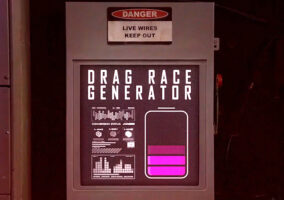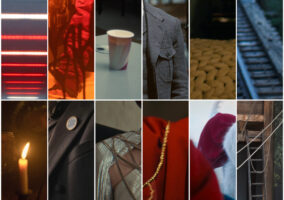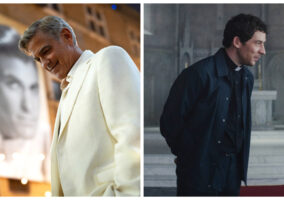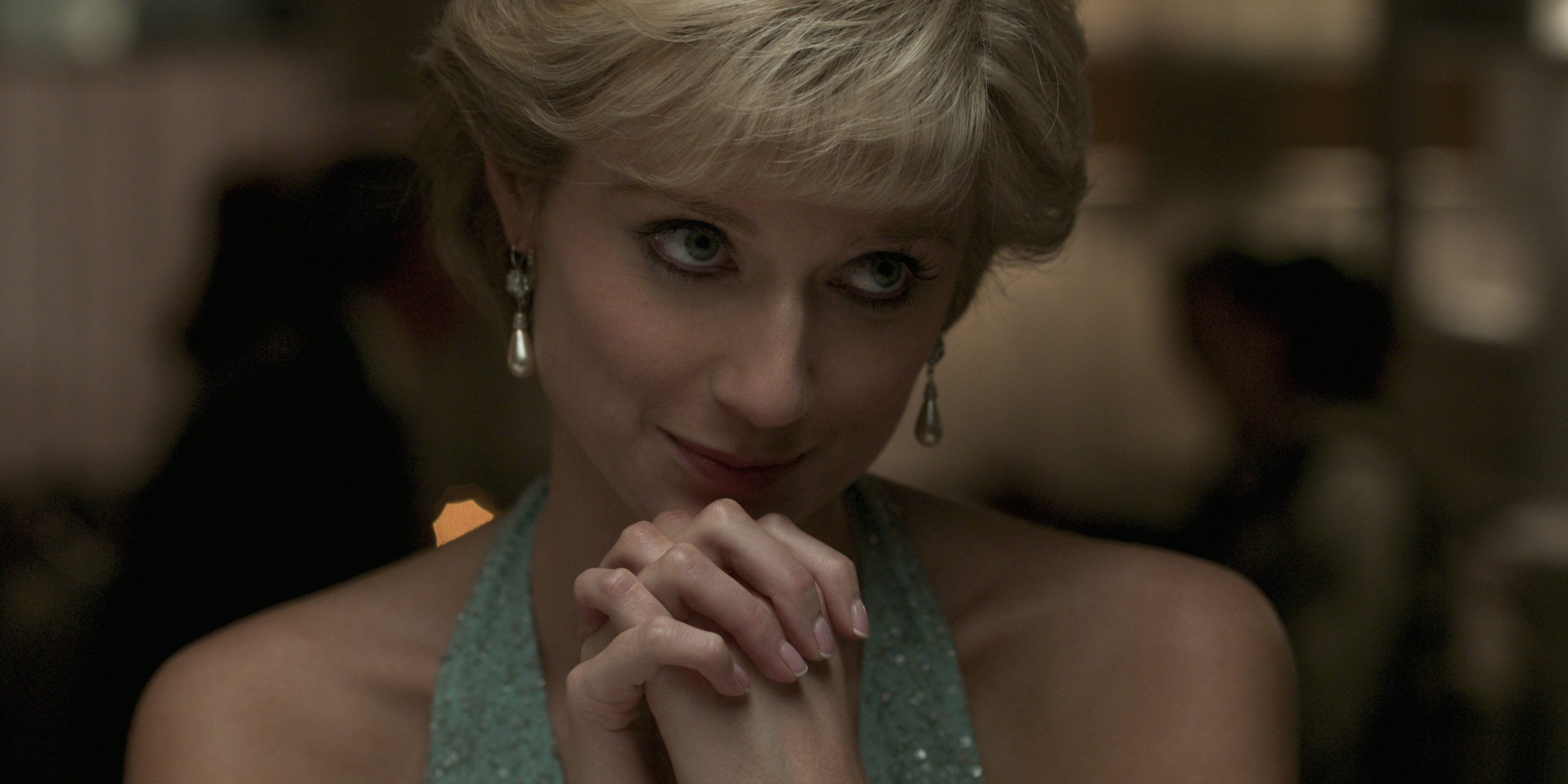
Episode 9: “Couple 31”
Part of us wants to thank Peter Morgan for inserting all of these divorce court scenes, because it made recapping this final stretch of episodes a lot easier. Roughly a quarter of the episode was turned over to testimony from a bunch of nameless civilians about the breakdown of their marriages (we will not be recapping the various arguments). We understand the point of these interludes – that divorce is, after all, a very human and widespread event in almost everyone’s lives and that most divorces tend to come down to the same simple complaint: They didn’t give me what I want to be given. But there are so many scenes like this in The Crown, long scenes of people driving up to entrances or walking down hallways, nearly entire musical or dance performances any time a character goes to a show (which happens often enough in royal life). There’s a point at which a show’s love of adding flavor or atmosphere tends to come off more like padding or some other form of pacing issue. We hate to keep banging this drum, but if you cut all of these extraneous scenes by half, you’d be able to tell the entire sordid tale of the York marriage and probably fit in some time for Princess Anne’s life. What’s so puzzling to us about this sort of padding, not to mention the focus on peripheral players like Mohamed El-Fayed, is that this is the one season of The Crown where they have almost too much royal drama to choose from in the period they’re depicting.
The Queen sits down to write identical letters to Diana and Charles, detailing her plans to grant them the right to divorce after having discussed it with major religious and political advisors. She gets in a few passive-aggressive shots at both of them, for disappointing the entire world and causing anguish to the whole family, while maintaining her personal opposition to divorce as the sovereign and head of the church. She closes both letters “With love, from Mama,” using her “With love, from Mama” stamp, which is pretty hilarious. Charles seems resigned and Diana weeps. She tells her therapist that “the wind changed” after her Panorama interview and a lot of her remaining support abandoned, mentioning that both her press secretary and private secretary left, as well as Hasnat Khan. Given the time spent introducing him and laying the groundwork of their relationship, it would have been nice to see more of him and to get a sense of how their breakup went down.
A fleet of lawyers arrive at Highgrove to tell Charles that Diana wants, among other demands, to keep her Kensington Palace apartment and a payment of 35 million pounds. Charles is both apoplectic and helpfully expository as he explains the contours of the divorce to Camilla, probably the last person in the world who needed to be updated on the subject. She, for her part, is stuck inside, not even able to take her dogs for a walk because of the constant phalanx of press outside. She notes to Charles that everything blew up in Diana’s face after the Panorama interview. While we can understand why the people at the center of this story, Diana included, might express that the interview was a mistake, The Crown is really going out of its way to avoid mentioning or portraying the enormous outpouring of international support the Princess received in the wake of it. Charles suggests to Camilla that she met with a PR expert that had been recommended to him by his legal team. Meanwhile, John Major spends his weekly audience with the Queen largely as he spent this entire season: discussing the fallout of the Wales marriage. It’s a shame they couldn’t give Jonny Lee Miller more to do this season, but we never minded looking at him while he did it. Anyway, the Queen asks him to be the official mediator in the royal divorce and expresses no small amount (for her) of respect and affection for the PM. He is thrilled to be asked and marvels to his (unnamed and mostly silent all season) wife that someone from his background would be asked to mediate a royal divorce, which seems a bit odd for someone who has reached the professional heights that he has. His wife gets a line or two and expresses some discontent with the state of her marriage that comes out of nowhere and is never referenced again.
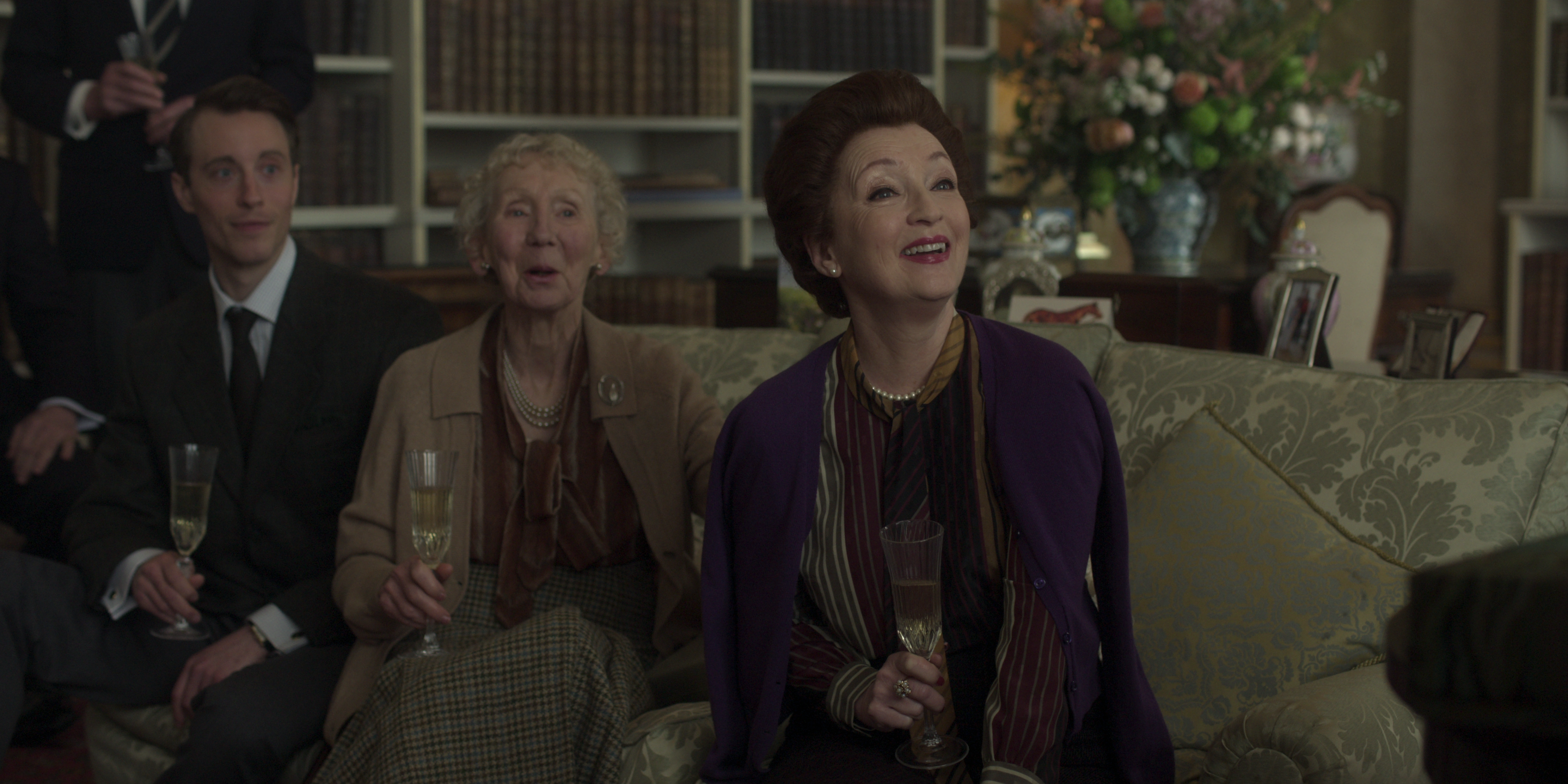
Camilla meets with Mark Bolland, the PR spin doctor Charles suggested for her. They hit it off immediately (not least because he does some serious ass-kissing) and gets her to admit that what she really wants is “legitimacy” for her relationship with Charles, meaning a ring on her finger and eventually, a crown on her head. She can’t bring herself to say the Q word, however, which is a bit amusing given the way the press in the present day can’t bring itself to call her “Queen” without adding the historically inaccurate (not to mention insignificant) “Consort” after it. Still, the show gives Camilla the chance to make her case for herself. She states that she could be a good deal of help to Charles and that she knows how to keep the petulant prince happy, both of which largely turned out to be inarguable. John Major meets with both Diana and Charles, each of whom call the other inflexible. Charles meets with Mark Bolland and at this point, we’re a little stunned that someone actually thought an entire hour of television devoted to the minutiae of divorce negotiations and meetings with lawyers and PR executives would somehow be captivating. We can’t escape the feeling that we’re being subjected to all this dreary nothingness solely to give Charles and Camilla the chance to face the camera and state the case for their relationship. John Major meets with the Queen to explain to her how divorces work. We can’t get over how insanely dull this all is.
The only scene of minor interest was the one absolutely weighed down with cliches: the “let’s have a frank and semi-loving discussion about where it all went wrong” scene as Charles pops by Diana’s apartment for a surprise visit. While we didn’t buy the veracity of the scene for a second, it was nonetheless interesting to see these two versions of the characters sit down together, since they spend the majority of the season talking about each other rather to each other. The conversation doesn’t really reveal anything new and merely serves to underline the oft-stated perspectives that Charles was petulant, but Diana was unstable. Even so, we were glad – if that’s the right word to use – that the scene ended badly, with Charles being particularly cruel to her as he left. We would have hated some sentimental lover’s goodbye. They hated each other at the end and there’s no point in pretending otherwise. As the episode went to painstaking lengths to get across, that’s just how some marriages end.
Episode 10 “Decommissioned”
We open with Dodi Fayed informing his father that he’s buying a Malibu mansion and wants him to meet his American girlfriend. Meanwhile, Diana watches the program Monarch: A Nation Decides and spends her time redialing the number to vote “NO” on her former in-laws’ continued existence. We’d like to say it was a cutely funny scene, but it just felt like another in a long line of scenes depicting Diana as sad and ridiculous. At Buckingham Palace, the family has convened to give the Queen birthday gifts. Most of the gifts are of the gag variety except for the one from Charles, who gives her one of his paintings. In case you missed the heavy-handedness of these opening scenes: Diana is pathetic and Charles is sensitive and misunderstood. At the birthday luncheon, Charles rails against the family’s poor standing once again, while most of his siblings roll their eyes and tease him and the Queen tries her best to ignore him. Tony Blair is about to win the election and Hong Kong is about to cut ties with its former “administrators,” the United Kingdom. The family discusses these matters and it is decided that Charles will go to Hong Kong for the handing over, since it would be undignified for the sovereign to do it. This is all just a little silly, as if the royal family decides major engagements around brunch instead of leaving it up to advisors and courtiers.
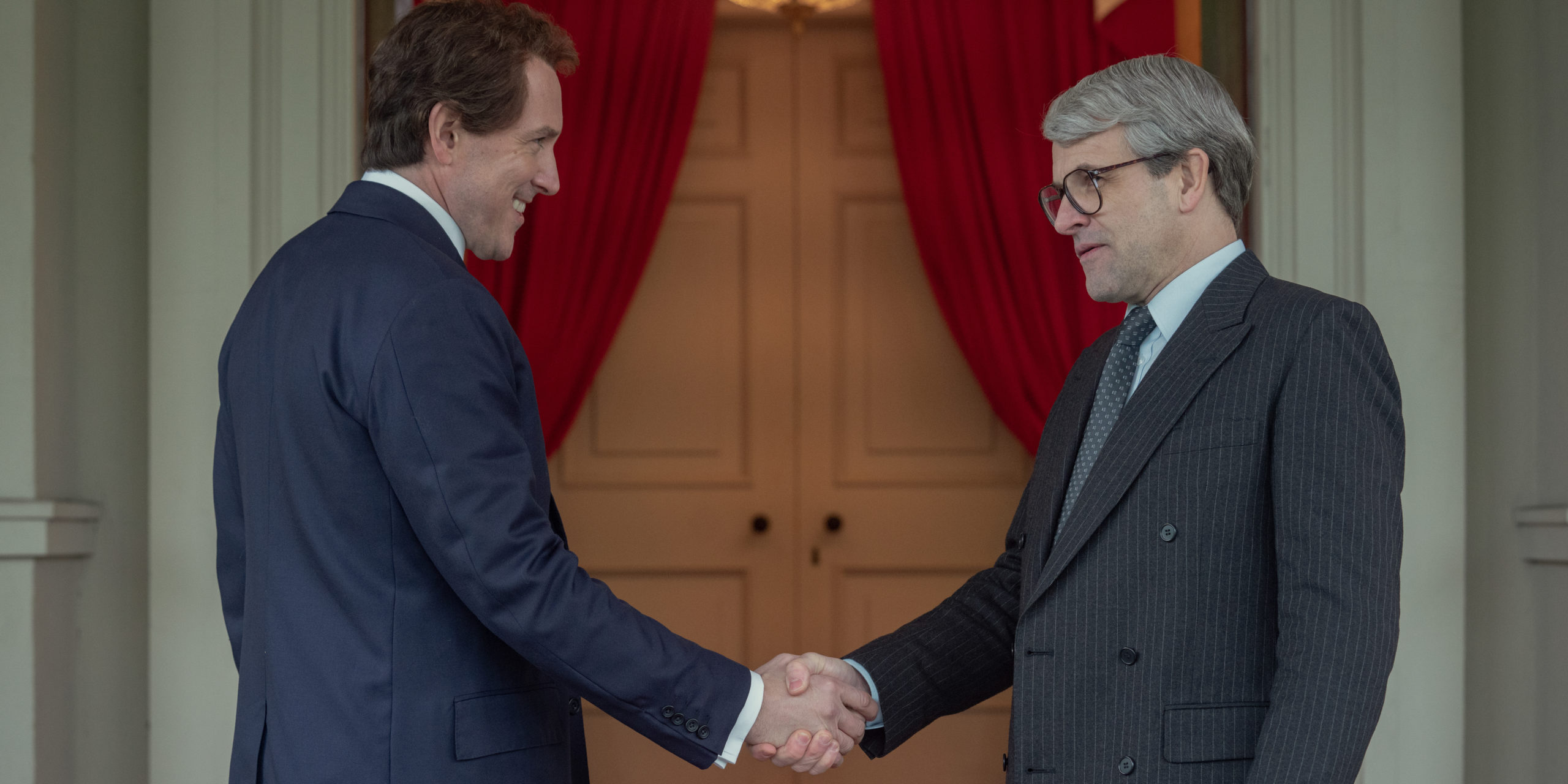
Dodi and his girlfriend do coke, have sex, and run (terrible) lines on his father’s private jet. Later, they have dinner with Mohamed and his wife. Mohamed is extremely rude and makes it clear that he doesn’t approve of the match because she’s not high-born enough for his tastes. We are bored by all of this. We can see the obvious ways it connects to the larger story of the royal family, but none of the Fayed family drama really amounts to anything for the viewer.
Tony Blair wins the election and The Crown very clearly takes a dim view of the politician, who’s portrayed as slick and disingenuous; a collection of tics and smirks. John Major has his final audience with the Queen and expresses his own disappointment. Elizabeth is clearly very fond of him and takes the rare step of actually saying so. We think it was those big cow eyes of his that won her over. Still, it’s a lovely scene, as most of these “final audience” scenes tend to be. We’re going to miss the cutest PM this show ever had. In one of his first meetings with the Queen, Tony Blair suggests a new, modern (the phrase “new, modern” is uttered about a thousand times this episode) royal yacht named after his own political slogan. She is revolted by the idea and informs the family that her beloved yacht will be taken away from her. While we have no doubt this was hard for her (one of the few instances of the Queen crying in public was when the Britannia was decommissioned), it’s impossible for the average viewer to truly become emotionally invested in “They’re taking our yacht away from us!” as a dramatic storyline. It is decided that Charles will take the yacht on its final voyage to Hong Kong. Charles being Charles, he takes the opportunity to use the yacht for a pleasure trip and also schedules a meeting with Tony Blair on it. He is forced to fly business class and Camilla tells him he’ll have to be very brave about it.
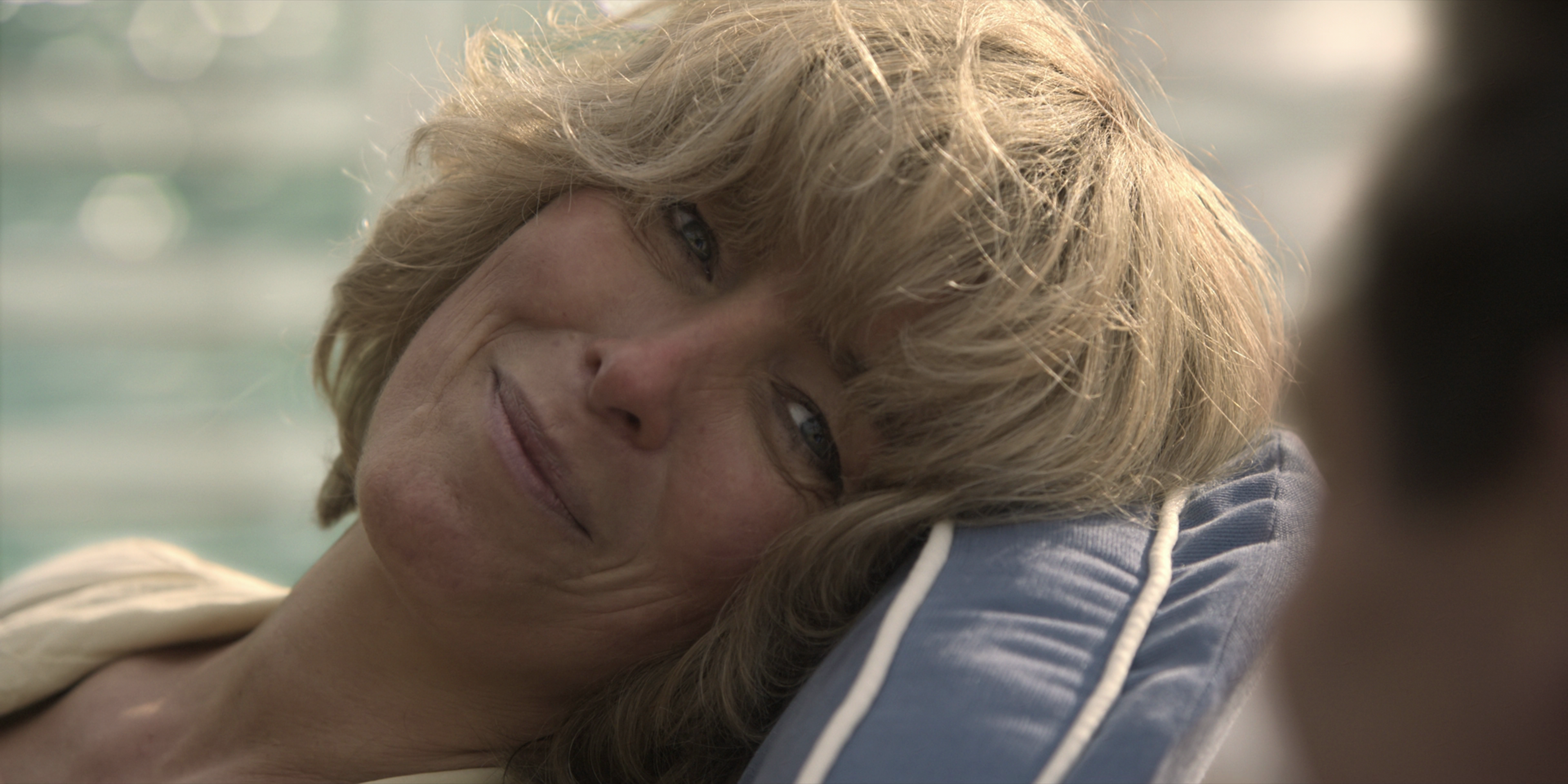
Diana goes to the ballet and is spotted by Mohamed, who invites her to dinner with him and his wife. She spends the dinner doing what Diana has done in 95% of her scenes on The Crown, complaining. She tells them that she doesn’t want to be in the country when Camilla turns 50, which strikes us a bit ridiculously melodramatic. Mohamed invites her to bring the boys to Saint Tropez for a vacation on his yacht. “You will think it’s all very Egyptian and vulgar, but you will love it,” he tells her, revealing that he knows her better than just about anyone.
Charles gives a dull speech in the rain in Hong Kong. Later, he has a meeting with Tony Blair on the Britannia and fawns over him for being young and modern. He tries to draw parallels between the two of them, “two men of the same age and generation.” Tony feels bad about decommisioning the yacht and Charles picks up the Metaphor Hammer and intones that there’s no point in clinging to the past. Tony later expresses shock at the meeting, noting that the Prince was “effectively briefing against his own mother” and reflects (as so many tend to do on The Crown) about how hard it must be to be the Prince of Wales. It’s honestly kind of hilarious how many people came out against this season of the show, fearing that it would be the ruin of King Charles, when the most of the season has been an inexplicable defense of him.
The Queen is furious to hear that Charles used the yacht for a private vacation and a meeting with the Prime Minister. She calls him on the carpet and the two of them have yet another restrained argument about the same topic. She’s too stuck in her ways and he’s too wild to be King. She doesn’t think he should be pursuing a relationship that the entire public seems to be against (neatly forgetting her earlier argument that sovereigns don’t pay attention to polls) and he tells her that she’s being so narrow about what the monarchy is that she may not wind up leaving him a role to inherit. Eventually, the argument gets down to what they’re really arguing about, which both of them would be loath to admit: power and popularity. She remains unmoved by her son’s predicament and the argument ends abruptly and silently.
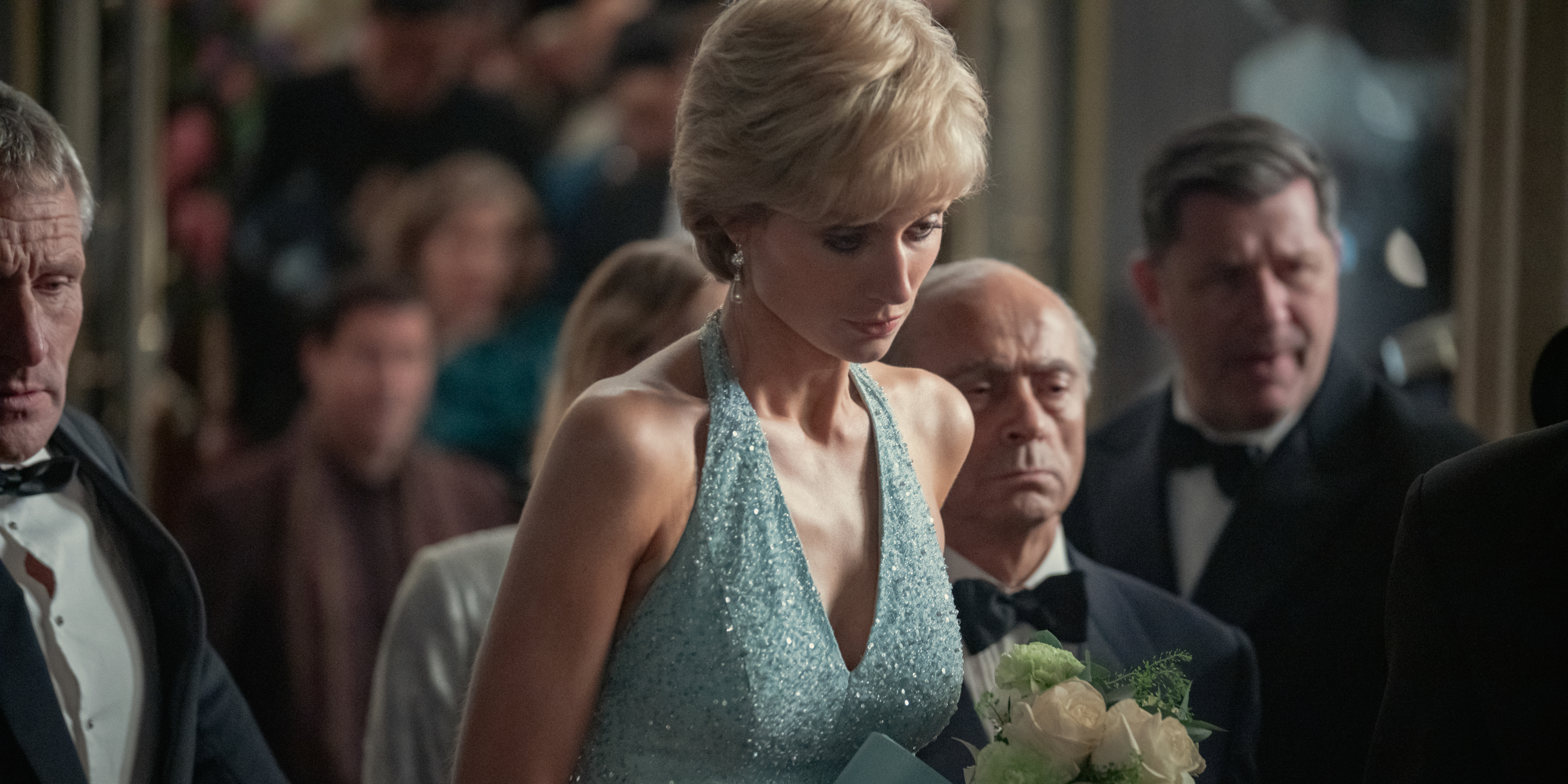
Later, she says goodbye to the Brittania and the season just… ends. We have a full wrapup of the season in our most recent podcast, but we’ll repeat here what we said in it. This was the weakest season of The Crown yet and in his apparent desperate need to puff up King Charles, Peter Morgan did a disservice to all of the royal drama that unfolded in the 1990s. Instead, we got a rehashing of the basic tradition vs. modernity debate, a hagiographic take on Charles’ progressivism, and a nearly libelous depiction of the former Princess of Wales that played up her mental health difficulties and loneliness as defining traits at a time when she was dazzling the world with her independence. It’s ironic, because when the early seasons of the show dropped, so many viewers said they couldn’t wait when the series reached the Diana years, but it turns out Morgan doesn’t really have anything interesting to say about them. We wonder if the show shouldn’t have just remained a look at the early years of the Windsor marriage.
Emilio Pucci Resort 2023 Collection Next Post:
Amy Adams in Dolce & Gabbana at the LA Premiere of DISENCHANTED: IN or OUT?
Please review our Community Guidelines before posting a comment. Thank you!

